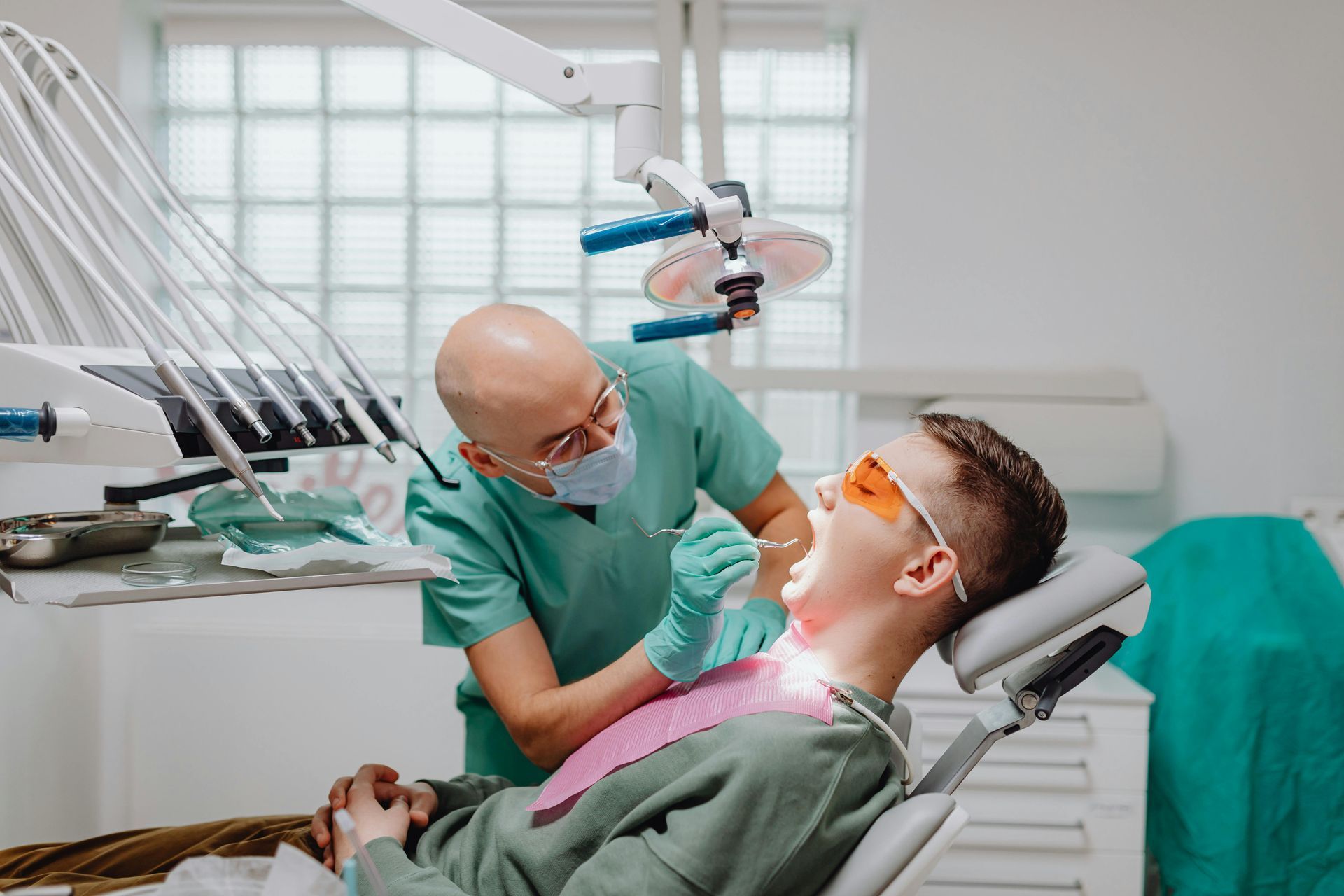Dry Mouth: At All Stages of Life
Dry Mouth: At All Stages of Life
Erostomia, or dry mouth, is a common ailment affecting as much as 65% of people in the world at some time in their lives. If you’ve ever suffered from dry mouth, you may wonder what has caused it and how you can treat and prevent it. Learn more about how this common health condition can impact you at all stages of your life.
What Is Dry Mouth?
A clear substance called saliva helps healthy mouths stay wet and comfortable. Dry mouth occurs when your salivary glands don’t produce sufficient saliva to keep your mouth moist. Dry mouth, Xerostomia, can be a side effect of certain medical conditions, medication use, or other factors.
The following are common signs of dry mouth:
A dry sensation in the mouth and throat
Persistent thirst
Cracked lips and corners of the mouth
Sores around and in the mouth
Sore throat.
The Dangers of Dry Mouth
Saliva neutralizes the acids from bacteria in the mouth, the foods you eat, and the beverages you drink. It also makes chewing and swallowing easier and aids digestion. When your mouth is dry, the acids in your mouth are more concentrated and are more likely to cause tooth decay and gum disease. The chances of tooth decay also increase because food particles are more likely to linger in a dry mouth.
Saliva also helps your teeth absorb key minerals including calcium and fluoride. Without enough saliva, your teeth can become weaker and vulnerable to damage.
Without enough saliva to provide proper lubrication, parts of the mouth including the tongue and gums can become swollen and inflamed. This condition provides an environment for germs to breed and cause bad breath.
Dry Mouth in Children
Dry mouth is more common in adults than children, but the condition can still impact young people. The following are some of the most common causes of dry mouth in children:
Excess fluid loss, especially during bouts of diarrhea and stomach bugs or during hot summer weather
Breathing through the mouth
Medications prescribed for mood disorders and childhood cancers
Some medical conditions, including diabetes and Sjogren’s syndrome.
Dry Mouth in Adults
Adults are more likely to develop dry mouth than children. They can develop dry mouth for all the same reasons children can. In addition, the following factors may also cause dry mouth in adults:
Medications for high blood pressure, allergies, colds, the flu, and Parkinson’s disease
Some medical conditions, including Parkinson’s disease and Alzheimer’s disease.
Dry Mouth in Older Adults
Older adults are more likely to suffer from dry mouth than any other demographic since they are more likely to have illnesses and take medications that can trigger the condition compared to younger Canadians. However, dry mouth should not be considered a normal part of aging. Older adults may develop dry mouth for all the reasons children and adults do.
Dry Mouth Treatment
Regardless of your age, some simple habits can help improve the flow of saliva in your mouth.
Suck on mints or chew gum: Both mints and gum encourage the production and flow of saliva in your mouth. Choose sugar-free mints and gum with strong natural flavours, such as spearmint, for the best results that won’t compromise the health of your teeth.
Drink plenty of water: Among its many benefits, water promotes saliva production. Keeping a water bottle on hand can remind you to take a sip of water when your mouth feels dry. The Government of Canada recommends making water your drink of choice because it’s healthy, hydrating, and thirst-quenching.
Avoid alcohol and caffeinated drinks: These beverages are diuretics which can leave you and your mouth dehydrated.
Snack on fruits and vegetables: Bypass potato chips and chocolates and choose nutritious fruits and vegetables to ease your hunger pains. These foods are not only healthy, but they’re also full of water, which can make your mouth feel less dry.
Avoid salty foods: Salty foods, including potato chips and deli meats, can dry out the mouth. Be careful of processed foods. Even if they don’t taste salty, instant meals, fried foods, and canned pantry staples are often high in sodium.
Breathe through your nose: Breathing through the mouth dries out the mouth. If your nose is too congested for easy breathing, try clearing it with a saline nasal spray.
Speak to your doctor about medications: Dry mouth is a common side effect of many medications. If you suffer from dry mouth, ask your doctor whether another medication could treat your condition without making your mouth dry.
These treatment options are also ways to prevent dry mouth from recurring. Maintain a healthy oral routine to minimize developing dry mouth in the future.
Don River Dental is a full-service family dental clinic located at 1396 Don Mills Rd (between York Mills and Lawrence, north of Shops at Don Mills). Give us a call today at 416 901 9292 or visit our HOMEPAGE to see how we can help you and your oral health.
Dry Mouth: At All Stages of Life. 123Dentist Blog. July 9 2020.

Persistent Toothache: When Pain Becomes Unbearable Experiencing a persistent toothache can be an alarming sign that requires immediate dental attention. Tooth pain might seem manageable at first, but when it escalates to severe toothache, it becomes unbearable and signals the need for prompt treatment. Warning Signs to Watch: Severe Pain: Pain that does not subside with over-the-counter pain relievers. Warm or Cold Sensitivity: Heightened sensitivity when eating or drinking hot or cold substances. Bad Taste: A constant bad taste in your mouth may indicate an infection. If you encounter any of these symptoms, it's vital to visit an emergency dentist. Immediate dental care helps maintain oral health and can prevent persistent dental emergencies. Thus, never underestimate the importance of promptly addressing a severe toothache. Extreme Tooth Sensitivity: Sudden or Chronic Extreme tooth sensitivity can be both sudden or chronic, causing discomfort and possibly leading to severe dental issues if not addressed promptly. Understanding the underlying causes is crucial for timely treatment. Here are key facts you should know: Common Symptoms: Sharp Tooth Pain: Often triggered by hot, cold, acidic, or sweet foods and drinks. Persistent Discomfort: Even when not eating or drinking. When to See a Dentist: Severe Pain: Signaling a possible serious dental issue. Toothache: Especially if it is frequent and intense. Loose or Broken Tooth: Emergency dental care may be necessary. Preventive measures, such as maintaining oral health with proper hygiene and avoiding overly acidic foods, can reduce the risk of sensitivity. If you're experiencing persistent sensitivity or any other dental emergencies, seek professional dental attention promptly to explore treatment options. Swollen or Bleeding Gums: A Sign of Trouble Swollen or bleeding gums can be a significant warning sign of gum disease, an oral health issue that requires prompt dental attention. Many might overlook minor bleeding during brushing, but if this symptom persists, it is essential to consult a dentist immediately. Gum disease, in its early stages, is known as gingivitis and can progress to more severe dental issues if left untreated. Here are some alarming symptoms to watch for regarding your gums: Persistent Swelling : Constant inflammation can be a precursor to severe gum disease. Frequent Bleeding : If your gums bleed regularly, even without brushing aggressively, it indicates an underlying issue. Bad Taste or Bad Breath : Persistent bad breath or a bad taste in the mouth signals bacterial accumulation, which may stem from gum disease. Immediate Measures to Take: Practice proper oral hygiene with thorough brushing and flossing. Rinse with warm water to reduce inflammation and bacteria. If you're experiencing these symptoms, it might be time to seek dental care. Early and timely treatment can prevent tooth loss, jaw pain, and more severe dental emergencies. Always prioritize oral health and consult with a dental professional to explore treatment options. Jaw Pain or Clicking: Potential TMJ Concerns Jaw pain or clicking might seem minor, but they can be potential indicators of Temporomandibular Joint (TMJ) concerns. Understanding these warning signs is crucial for maintaining your oral health. Common TMJ Symptoms: Persistent pain in the jaw area Clicking or popping noises when opening or closing the mouth Difficulty or discomfort when chewing A change in the way the upper and lower teeth fit together These symptoms warrant prompt dental attention to prevent further complications. An emergency dentist can assess the severity of these signs, providing timely treatment to relieve discomfort and prevent tooth root damage or additional dental issues. Potential Causes: Teeth Grinding - Often occurring unconsciously during sleep Arthritis - Affecting the temporomandibular joint Jaw Injury - Resulting from an accident or direct impact Maintaining good oral hygiene and regular dental care can help prevent TMJ disorders. If any of these symptoms arise, consider warm water rinses and consult a dental professional to explore treatment options. Timely treatment can mitigate severe pain and ensure better oral health. Always prioritize getting dental attention if you experience these warning signs. Loose, Cracked, or Knocked-Out Teeth: Act Quickly Loose, cracked, or knocked-out teeth are dental emergencies that demand immediate attention. Quick action can mean the difference between saving and losing a tooth. Loose Tooth in Adults: If you notice an adult tooth becoming loose, it’s a significant warning sign of potential gum disease or tooth root issues. Visit an emergency dentist without delay for prompt treatment. Cracked Tooth: A cracked or broken tooth exposes the sensitive tooth root and can lead to severe pain or even infection. Rinse your mouth with warm water, and contact your dentist immediately for dental treatment. Knocked-Out Tooth: Time is critical. If a tooth is knocked out, gently rinse it with warm water, place it back in the socket if possible, or submerge it in milk. Seek emergency dental care within an hour for the best chance of saving the tooth. Here's a quick checklist for handling these situations: Rinse gently with warm water. Recover the tooth or tooth pieces, if applicable. Seek timely treatment from an emergency dentist. These dental issues require swift action to ensure sustained oral health and effective treatment options. Never ignore the warning signs, as timely intervention is key. Dental Abscesses: The Hidden Infection A dental abscess is a serious oral issue that often lurks unnoticed until it becomes a dental emergency. It's a pocket of pus caused by a bacterial infection, typically forming inside the tooth or gums. If left untreated, it can lead to severe tooth pain and other complications. Warning Signs of a Dental Abscess: Severe Toothache: Persistent, throbbing pain that can radiate to the jaw, ear, or neck. Swelling: Noticeable swelling in the gums or face. Bad Taste: A constant foul taste or bad breath due to pus drainage. Fever and Malaise: Feeling generally unwell or feverish. Prompt dental care is crucial. Use warm water to rinse your mouth and reduce discomfort while seeking an emergency dentist for timely treatment. Ignoring warning signs can lead to more severe dental issues and possible tooth loss. Always prioritize oral hygiene to prevent such dental emergencies. Changes in Gum Color, Texture, or Shape: Periodontal Red Flags Changes in gum color, texture, or shape can be significant warning signs of gum disease and require immediate dental attention. Healthy gums should be pink, firm, and fit snugly around your teeth. Any deviations from this norm could indicate underlying dental issues. Possible Warning Signs: Red or Swollen Gums : Can indicate inflammation or infection. Bleeding Gums : Often a sign of gum disease, especially after brushing or flossing. Receding Gums : This could expose your tooth root and lead to sensitivity or even tooth loss. Soft or Tender Gums : May signal a severe stage of gum disease. Prompt treatment can prevent further complications such as tooth decay or even tooth loss. It's crucial to see an emergency dentist if these changes persist. Maintaining optimal oral hygiene and scheduling regular dental care appointments are key to preventing these periodontal issues.Act quickly if you notice any of these changes to ensure your oral health remains in optimal condition. Persistent Bad Breath or Metallic Taste: Unseen Dental Issues Experiencing persistent bad breath or a metallic taste in your mouth can be more than just a social inconvenience; these are often warning signs of underlying dental issues. A metallic taste can indicate issues such as gum disease or tooth decay. When bacteria accumulate due to poor oral hygiene, they can lead to infections, causing a sour or metallic taste. Similarly, chronic bad breath (halitosis) can suggest serious concerns like dental decay, gum disease, or even dry mouth—a condition where insufficient saliva leads to harmful bacteria growth. Check these potential signs: Persistent bad breath: Could be a sign of gum disease or tooth decay. Metallic taste: Might indicate oral infections or poor dental hygiene. Signs of dry mouth: Reduced saliva can lead to bacterial growth. In such cases, immediate dental attention is crucial. An emergency dentist can offer prompt treatment options to mitigate further damage, ensuring your oral health is restored with timely treatment. Make sure to ensure regular dental visits to address these concerns proactively and maintain optimal oral hygiene. Dry Mouth: The Silent Cavity Culprit Dry mouth, also known as xerostomia, might seem like a minor inconvenience, but it can be a silent trigger for more serious dental issues. Saliva plays a crucial role in maintaining oral health by neutralizing acids and cleaning food particles. When saliva production decreases, it increases the risk of tooth decay and gum disease. Warning Signs of Dry Mouth: Persistent thirst Trouble swallowing Bad breath Thick or stringy saliva A constant dry feeling in the mouth If you experience severe toothache or other symptoms like jaw pain or a bad taste that accompanies dry mouth, seek timely dental attention. An emergency dentist can provide prompt treatment to alleviate discomfort and prevent further dental damage. Remember, maintaining good oral hygiene and staying hydrated are essential steps in combating this silent cavity culprit. Seek dental advice if persistent issues arise, as timely treatment is crucial for minimizing long-term complications. Conclusion: Protecting Your Oral Health Through Awareness It is crucial to stay informed about the warning signs that you need to see a dentist immediately. Recognizing these signs can mean the difference between quick recovery and complicated dental issues requiring extensive treatment. Common Warning Signs: Severe Toothache Persistent Jaw Pain Bad Breath or Bad Taste Loose or Knocked-Out Tooth Severe pain from a Broken Tooth Dry Mouth Ignoring these symptoms can escalate into serious problems like tooth decay or gum disease, which might eventually lead to tooth loss or require emergency dental care. Ensuring prompt treatment for these symptoms can prevent long-term damage and more invasive dental procedures. Simple Tips for Oral Health: Maintain good oral hygiene by brushing and flossing daily. Rinse with warm water to alleviate discomfort. Schedule regular dental check-ups. Awareness is your first line of defense in protecting your oral health. By staying vigilant and seeking timely treatment, you safeguard not only your teeth but also your overall well-being. Prioritize dental care to ensure a healthy, confident smile. At Don River Dental we give you the best tips . If you are experiencing any symptoms or pain please feel free to call us at (416) 901 - 9292 and someone from our team will be happy to answer any questions and schedule an appointment as soon as possible. We offer safe soothing dentistry in North York.











